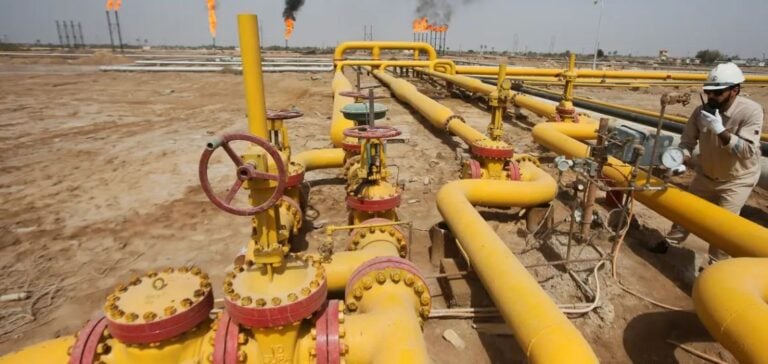Iraq, one of the world’s leading oil producers, is striving to diversify its energy outlets beyond its historical clients in Asia. According to Fuad Hussein, Iraq’s Foreign Minister, discussions are ongoing with several European countries, and diplomatic initiatives have begun with African nations to assess export opportunities.
The country currently produces 4.6 million barrels per day (b/d), of which 3.6 million are allocated for export, while one million barrels are consumed domestically. While China and India still account for a significant share of Iraqi exports, this initiative aims to broaden Iraq’s oil reach to other strategic global markets.
The Importance of Diversification
In October, China imported 41% of Iraq’s seaborne exports, equivalent to 1.34 million b/d. India, on the other hand, absorbed 28% of these volumes, reflecting a significant reliance on two markets. Hussein emphasized the importance of retaining these market shares while establishing a broader presence, particularly in Europe, which could offer substantial medium-term opportunities.
China’s Presence in Iraq
China remains a key player in Iraq’s energy ecosystem. Beyond massive oil imports, Chinese companies hold stakes in several oil and gas projects. For instance, the Halfaya gas processing complex, built and operated by the China National Petroleum Corporation (CNPC), is a major pillar of Iraq’s energy infrastructure.
In May, during the latest licensing round for oil and gas, Chinese companies were awarded 10 of the 13 available projects, further cementing their growing influence over Iraq’s energy sector.
Prospects in Africa
Opening up to African markets represents a novel approach. Although negotiations are still in their early stages, Iraq’s Foreign Ministry views the continent as a strategic region due to its growing energy demand and economic potential. This orientation could also strengthen diplomatic relations between Iraq and African nations.





















